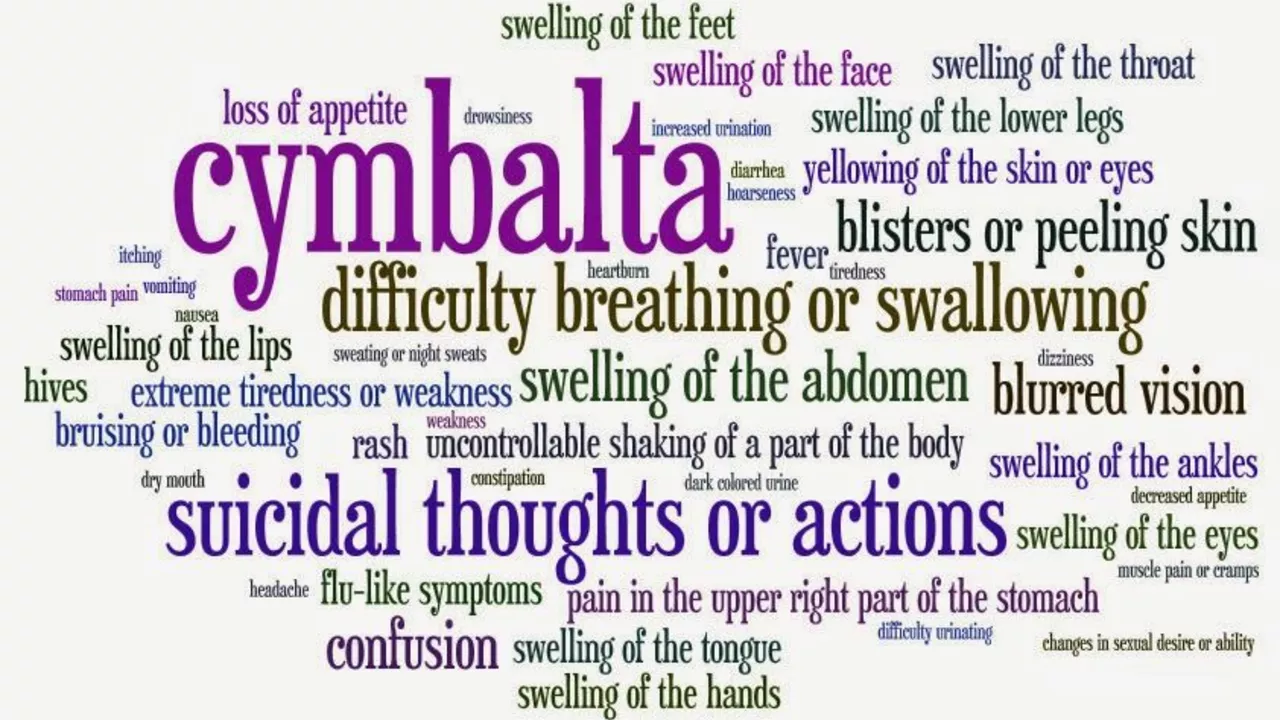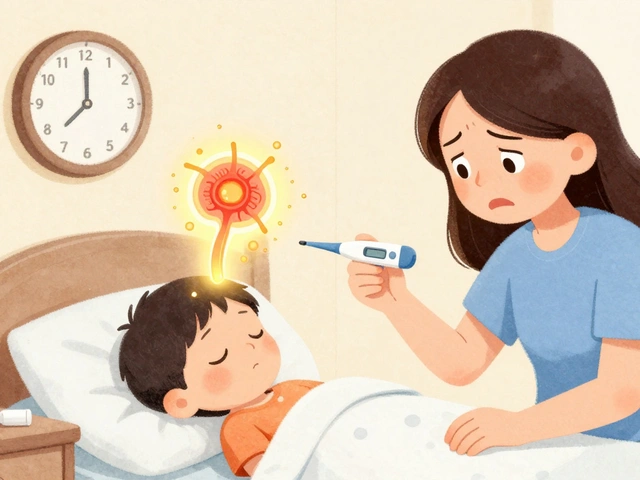 26
Jun,2023
26
Jun,2023
Introduction to Aripiprazole and Its Uses
Aripiprazole is an atypical antipsychotic medication commonly prescribed to treat a variety of mental health disorders, such as schizophrenia, bipolar disorder, and major depressive disorder. It is known to help balance certain chemicals in the brain, which can reduce the severity of symptoms and improve overall mental health. However, like many medications, aripiprazole also comes with potential side effects and risks, including the possibility of suicidal thoughts. In this article, we'll explore the link between aripiprazole and suicidal thoughts, and provide important information on how to manage and understand this risk.
How Aripiprazole Works in the Brain
Before diving into the link between aripiprazole and suicidal thoughts, it's essential to understand how the medication works in the brain. Aripiprazole is a partial dopamine agonist, meaning it stimulates dopamine receptors in the brain without causing the full effect of dopamine. Additionally, it also acts on serotonin receptors, helping to modulate the levels of both neurotransmitters. This balancing act can help alleviate many symptoms associated with mental health disorders, such as hallucinations, mood swings, and depressive episodes.
Understanding the Risk of Suicidal Thoughts
Aripiprazole, like other antipsychotic medications, carries a risk of causing suicidal thoughts, especially in younger individuals. This risk is more pronounced during the initial weeks of treatment or when doses are adjusted. It's crucial to be aware of this risk and monitor for any signs of suicidal ideation, especially if the person taking the medication is under 24 years old.
Why Do Some Medications Increase Suicidal Thoughts?
While the exact reason why some medications, including aripiprazole, can increase the risk of suicidal thoughts is not entirely understood, several theories exist. One theory is that as the medication begins to work and improve mood, a person may suddenly have the energy or motivation to act on previously suppressed suicidal thoughts. Another possibility is that the medication may cause a temporary imbalance in brain chemistry, leading to the emergence of suicidal thoughts. However, more research is needed to fully understand this phenomenon.
Recognizing the Warning Signs of Suicidal Thoughts
It's essential to be vigilant in monitoring for any signs of suicidal thoughts while taking aripiprazole or any other medication with a potential risk of causing suicidal ideation. Warning signs to look out for include a sudden worsening of depression, increased agitation or irritability, withdrawal from friends and family, and expressing feelings of hopelessness or worthlessness. If you or someone you know is experiencing any of these warning signs, it's crucial to seek professional help immediately.
Managing the Risk: Open Communication and Monitoring
One of the most effective ways to manage the risk of suicidal thoughts while taking aripiprazole is through open communication with healthcare providers and loved ones. Be transparent about any changes in mood, thoughts, or behaviors, and don't hesitate to reach out for support when needed. Additionally, regular monitoring by a healthcare professional can help identify any concerning changes and ensure that the medication is working effectively.
Alternative Treatment Options
If you or someone you know is experiencing suicidal thoughts while taking aripiprazole, it's essential to discuss alternative treatment options with a healthcare professional. There are many other medications and therapies available that may be more suitable and carry a lower risk of suicidal thoughts. Remember, everyone's brain chemistry is unique, and what works for one person may not work for another. Don't be discouraged if it takes some trial and error to find the right treatment plan.
Maintaining a Support System
Having a strong support system in place can significantly reduce the risk of suicidal thoughts and promote overall mental health. Reach out to friends, family, and mental health professionals for support and encouragement. Additionally, joining support groups or online communities can provide valuable resources and a sense of belonging to others who may be experiencing similar challenges.
Conclusion: Understanding and Managing the Risk
In conclusion, while aripiprazole can be an effective treatment for various mental health disorders, it's essential to be aware of the potential risk of suicidal thoughts. By recognizing the warning signs, maintaining open communication, and exploring alternative treatment options if necessary, you can better manage this risk and work towards improved mental health and well-being.






Notice the missing Oxford comma in the list of neurotransmitters.
Aripiprazole isn’t the only culprit for suicidal thoughts
First off, great rundown of how the drug works.
It’s crucial for patients to understand that the dopamine shift can feel like a double‑edged sword.
When monitoring, keep an eye on any sudden mood spikes that feel out of character.
Family and friends should be encouraged to note even subtle changes and report them promptly.
Overall, staying proactive can make a huge difference in safety.
One thing to remember, when you’re starting aripiprazole, dose adjustments often bring about transient side‑effects, so schedule regular check‑ins, and, if you notice any escalation in suicidal ideation, contact your prescriber immediately, because early intervention is key.
They woudnt tell u that big pharma is behind the data, so take everything with a grain of salt.
Hey folks, let’s remember that each brain chemistry is a unique puzzle; if aripiprazole feels off, there are alternatives worth exploring together.
Balancing treatment benefits with potential risks is a nuanced process-open dialogue with clinicians can empower patients to make informed choices.
Oh great, another "miracle" pill that might make you think about ending things-thanks, science.
I’ve seen friends grapple with these exact concerns, so please keep the conversation alive at home and with your doctor.
Picture this: a sudden surge of energy after weeks of lethargy-some interpret it as hope, others as a dangerous awakening of suppressed thoughts.
It’s a classic paradox of psychopharmacology, where the drug lifts the veil just enough for dark ideas to surface.
The literature hints at this, but the mechanisms remain elusive, leaving clinicians to rely on vigilant monitoring.
Don’t be fooled by simplistic narratives; the reality is far more intricate.
When one engages in a discursive exegesis of pharmacotherapeutic modalities, particularly those encapsulating the phenylpiperazine scaffold, one must grapple with the epistemological fissures that pervade contemporary psychiatry.
First, the ontological status of suicidal ideation as a side effect versus a symptomatic emergent property remains contested, invoking a panoply of methodological critiques.
Second, the temporal latency of dopaminergic partial agonism engenders a chiaroscuro of behavioral sequelae, wherein affective valence oscillates between amelioration and exacerbation.
Third, the sociocultural substratum-replete with stigma, pharmaceutical lobbying, and regulatory opacity-exerts a nontrivial influence on both reporting and perception of risk.
Moreover, the heterogeneity of patient populations, spanning developmental stages to comorbidities, precludes a monolithic risk assessment.
In clinical praxis, therefore, the imperative is to cultivate a reflexive, patient‑centred surveillance paradigm, integrating longitudinal scales, collateral narratives, and dose‑titration vigilance.
Simultaneously, one must interrogate the provenance of the data informing guideline mandates, lest we inadvertently perpetuate a reductive, pharmaceutical‑centric orthodoxy.
Consequently, the discourse should pivot toward a multidisciplinary synthesis, amalgamating neurobiological insights with psychosocial frameworks.
Only through such a dialectical approach can we aspire to mitigate the iatrogenic potential while preserving therapeutic efficacy.
In sum, aripiprazole’s risk profile is not a static datum but a dynamic, context‑dependent construct demanding perpetual scholarly and clinical scrutiny.
While the article presents a balanced overview, it fails to emphasize the severity of monitoring protocols required for younger patients, which is a glaring omission.
Understanding the nuanced interplay between medication and mental health calls for compassion, not condemnation, especially when navigating such complex decisions.
The extensive discourse on neurochemical modulation invites us to reflect on the metaphysical implications of altering consciousness through pharmacology.
It’s worth noting that many of the cited studies are funded by entities with vested interests, which could color the interpretation of risk.
Just a heads‑up: if you notice any mood swings, jot them down and bring them to your next appointment.
The recommendation for regular psychiatric follow‑up is essential; patients should schedule appointments at least monthly during dose adjustments.
Great summary! 👍
To expand on the earlier point, clinicians should also consider baseline suicidal ideation assessments, such as the Columbia‑Suicide Severity Rating Scale, before initiating treatment; this provides a measurable reference point for any subsequent changes.